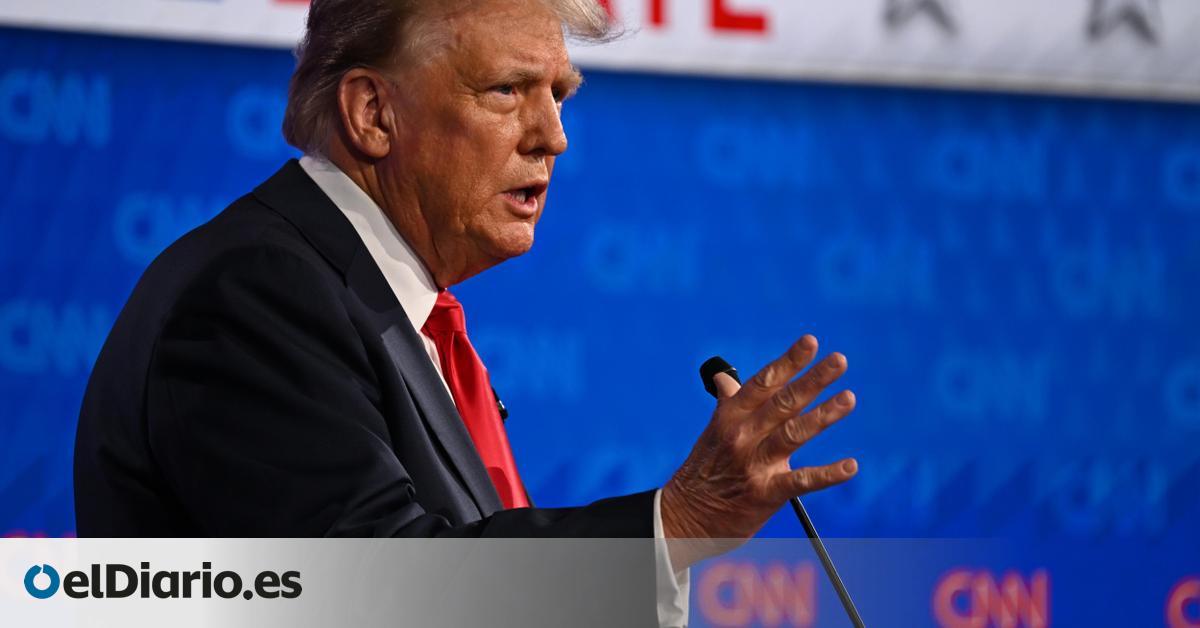
The US Supreme Court has ruled that Donald Trump, and any president or former president, “is entitled to absolute immunity from criminal prosecution for actions within his or her ‘constitutional authority.’” The ruling also notes, however, that “there is no immunity for unofficial acts.”
The Supreme Court’s decision will have clear implications for the three criminal trials that Trump still faces, two of them federal, where he has already tried to argue that the acts for which he is being tried are linked to his presidency and, therefore, he would enjoy presidential immunity. Now the question will be to discern how far presidential acts and private acts go.
The ruling is a victory for Trump, not only because of the possibility of eventually getting rid of the charges against him, but also because it will further delay the criminal trials where the prosecution will have to prove that the acts of which Trump is accused were not presidential acts. The judges’ decision gives more wings to the former president’s campaign to return to the White House just after cornering his rival, Joe Biden, in the CNN debate last week. “A victory for the Constitution and Democracy. Proud to be an American,” the tycoon celebrated on his social network, Truth Social.
Trump’s defense decided to appeal to the highest court after the Washington appeals court denied him immunity for committing possible crimes while he was president. In total, Trump is charged with four: two related to obstructing the certification of the 2020 election results that took place in Congress on January 6, one of conspiracy to try to prevent the counting of votes in the election, and another for having tried to deprive citizens of a right protected by federal law, specifically the right to vote.
The mere fact that he managed to get the Supreme Court to accept the appeal and have to deliberate on presidential immunity was already a victory for Trump. The postponement of the trial until the Supreme Court’s decision was known already guaranteed that the verdict in the Washington case would not come out until after the elections. Added to this is the possibility that if Trump wins the elections on November 5 and is sworn in as president, he could even pardon himself. Although this continues to generate debate among legal experts.
The Supreme Court’s conclusion not only affects Washington’s case, but will likely impact some of the charges against him in the two other cases still pending: the Georgia state case for trying to overturn the 2020 election result and the Mar-a-Lago classified papers case.
The ruling has been a long time coming, and it has not arrived until July 1, when the Supreme Court normally issues all its decisions during the month of June. The last time the judicial calendar had to be extended was during the pandemic in 2020. Making a decision on Trump’s presidential immunity was not an easy matter, since it is a historic ruling that will affect all future presidents. During the oral hearing on April 25 in the case Donald Trump vs. the United States, The tycoon’s defense once again took its theory on presidential immunity to the extreme and argued that a president enjoys immunity even if, while in office, he orders the assassination of his political rivals. Only Congress, through a impeachment, could prosecute him, argued Trump’s lawyer, John Sauer, who twisted the argument even further, going so far as to defend immunity in cases as extreme as a president ordering a coup.
Differentiating between official and personal
To prove that his client was not seeking personal gain, but was concerned about an issue affecting the country, Sauer insisted that Trump did not want total immunity for himself and that he should be charged for his private conduct. But if it was a question of official acts, he should enjoy said immunity. In other words, the yardstick proposed by Trump’s lawyer to decide when immunity was applied or not was whether it was a question of official or personal acts. This fact generated a lot of debate among the nine judges, not only because of the blurred line that differentiates between official and personal, but also because it was still just as dangerous to grant full immunity in official acts, since it would give almost total power to the president of the country.
The latter raised significant concerns among the progressive judges of the Supreme Court, who reminded Trump’s defense that there was precisely a great risk in granting total immunity to one of the most important people in the world. On the contrary, Sauer suggested that if the president of the country could not count on immunity to make decisions, his actions could be conditioned. A reasoning to which the conservative judges (who are the majority) were more receptive.
For example, Justice Samuel Alito expressed concern that if presidents could not retire peacefully knowing they would not be persecuted, it could fuel desires to cling to power. In recent weeks, Alito has been embroiled in a heated controversy for hanging the American flag upside down in the days before Joe Biden was inaugurated. The upside-down flag is a symbol that many of the rioters carried during the assault on the Capitol on January 6.
Source: www.eldiario.es

